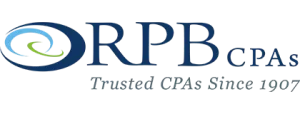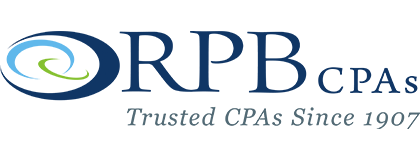General Newsletters
Walking on eggshells: ERISA compliance depends on plan documents
The Employee Retirement Income Security Act (ERISA) covers both defined-benefit and defined-contribution retirement plans. If your organization offers its employees either, you may feel like you’re constantly walking on eggshells with all the regulatory details involved. One critical way to stay in compliance and avoid costly penalties is to ensure your plan operates consistently with its plan documents. Most important requirement Although abiding by your plan documents might sound like a straightforward proposition, this isn’t always the case. ERISA requires plan fiduciaries to discharge their duties solely in the interest of participants and their beneficiaries “in accordance with the documents
Will leasing equipment or buying it be more tax efficient for your business?
Recent changes to federal tax law and accounting rules could affect whether you decide to lease or buy equipment or other fixed assets. Although there’s no universal “right” choice, many businesses that formerly leased assets are now deciding to buy them. Pros and cons of leasing From a cash flow perspective, leasing can be more attractive than buying. And leasing does provide some tax benefits: Lease payments generally are tax deductible as “ordinary and necessary” business expenses. (Annual deduction limits may apply.) Leasing used to be advantageous from a financial reporting standpoint. But new accounting rules that bring leases to
Audits home in on cybersecurity
In 2018, U.S. organizations that suffered a data breach lost an average of $7.91 million as a result. That’s the highest average organizational cost of all the countries and regions covered in the 2018 Cost of a Data Breach Study by IBM and independent research firm Ponemon Institute. Malicious or criminal attacks were the source of more than half of those breaches, rather than system glitches and human errors. With so much at stake, it’s no surprise that auditors consider these issues when conducting their audit risk assessments. This audit season, prepare to answer questions about cybersecurity and the effectiveness
Private companies: Have you implemented the new revenue recognition standard?
Private companies that follow U.S. Generally Accepted Accounting Principles (GAAP) must comply with the landmark new revenue recognition standard in 2019. Many private company CFOs and controllers report that they still have significant work to do to meet the demands of the sweeping rules. If you haven’t started the implementation process, it’s time to get the ball rolling. Lessons from public company peers Affected private companies must start following Accounting Standards Update (ASU) No. 2014-09, Revenue from Contracts with Customers (Accounting Standards Codification Topic 606), the first time they issue financial statements in 2019. For private companies with a fiscal
Tax Reform & Retirement Planning
Should My Retirement Planning Change After Tax Reform? As the Internal Revenue Service continues to forge ahead in writing regulations and opinions to help clarify the many gray areas in the largest tax reform in over 30 years, we as professionals also continue to research and explore areas in the revisions to help our clients save money, both now and down the road. As most of us are aware, there are a number of different products available to fund retirement for employees, employers, and business owners. In order to determine what is the best product and method, not only do
Can Bad Bookkeeping Cost You Money?
Does it really matter how perfect my accounting records are if I am only a small business? When most small business owners think of bookkeeping and accounting, they think of it as a necessary evil and often fail to focus on making sure the records are clear and supported. Many new small businesses often have cash flow needs that are sometimes not met by sales and require inflows from other sources such as loans. Also, those same small businesses often co mingle personal expenses in with business accounts. Although some do not feel these items are a big issue so
State Income Taxes after the Wayfair
What Does the Wayfair Decision Mean for Income Taxes? Sales and use tax e-commerce considerations receive the bulk of attention from state lawmakers, perhaps because they are less difficult to conceptualize. The corporate income tax concerns raised by these transactions are just as pressing, if not more so, given the potential liabilities at stake. There are two primary issues. First, does selling purely electronic products and services to customers in a state establish nexus (a sufficient connection to warrant imposition of tax) for an out-of-state company lacking any other contacts with the state? Second, if an out-of-state company does have
Did Tax Reform Make the Kiddie Tax Worse?
How Tax Reform's kiddie tax may effect YOU In today's day and age we all strive to make sure our children are better off then we were. To that end, we often see children with investment accounts which, in the past, also sometimes provided a way to shelter some income at lower tax brackets. The last great tax reform, 1986, addressed this issue and brought us the kiddie tax. Under these rules, children are taxed at their normal applicable rates on their earned income, and on their investment income up to a prescribed amount. Under the prior law, children who
Corporate Debt, Is the ‘S’ Corporation Best?
Tax Planning with Corporate Structures and the New Tax Laws As we look at tax Reform and the numerous challenges it presents to even the smart tax planner, one of the most asked question by business owners is "What type of entity should I be?". With the addition of the new 20% deduction available to most businesses, many tax preparers simply look at benefits of 'S' versus 'C' as more of a math problem to solve. What is the tax impacts of that second layer of taxation (even though the rate is much lower) versus the pass-though higher rates and
The Power of Time Value of Money and Your Child’s Summer Job
Tax Planning for Your Children with the Help of Time Value of Money Tax planning and investment advice are (or should be) closely tied together. Looking at one while ignoring the other can greatly alter actual results from your expectations. Although we at RPB are not an investment advisory firm, we as tax planners work hand-in-hand with many advisory firms. The smart investor knows that the one thing that is never changing is time, and with proper planning, time can be an investor's greatest asset instead of their worst nightmare. Investing early can mean the difference between retiring when



